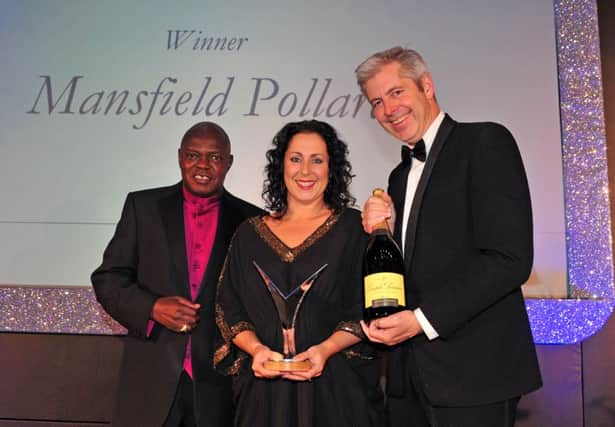Industrial gender gap could stay for a generation


Ahead of National Women in Engineering Day, integrated infrastructure services firm AECOM warns that unless urgent action is taken to address the growing gap between the number of male and female apprentices, the industry’s gender imbalance will persist for at least another generation.
While initiatives led by both industry and the government are contributing to a rising proportion of female candidates at graduate level, the gap is huge – and worsening – among engineering apprentices.
Advertisement
Hide AdAdvertisement
Hide AdAccording to the most recent data from the Department for Business, Innovation & Skills, less than 8 per cent of apprentices in engineering and manufacturing technologies are female and their numbers have declined since 2012.
In construction, planning and the built environment, women represent less than 2 per cent of apprentices.
In order to close the gap, AECOM argues that the engineering industry must be as lateral and creative in its approach to recruitment as it is to technical problem-solving.
One suggested avenue for reversing the trend has been to actively target female talent from less socially mobile categories who may not want to – or be able to afford to – go to university, with the aim of encouraging them to consider an engineering apprenticeship.
Advertisement
Hide AdAdvertisement
Hide AdKate Morris, director of transport planning, AECOM, said: “Urgent, positive action is required to correct years of unintended gender bias in the industry. The growing gender imbalance at apprenticeship level must be addressed now in order to avoid sleepwalking into future diversity problems.
“As an industry, we must apply our problem-solving skills to tackle the lack of awareness and interest in engineering among emerging female talent.”
Griselda Togobo, MD of Forward Ladies, is a former engineer and graduated in Electrical Engineering from the University of Science and Technology.
She said: “We need to leave no stone unturned in the drive to attract and retain more women in engineering.
Advertisement
Hide AdAdvertisement
Hide Ad“We are delighted to see companies of the like of AECOM talking about the issue and highlighting the gap in attracting female apprentices.
“We at Forward Ladies believe we need a holistic approach to tackling the under-representation of females in the sector. Our strategy involves apprentices as well as retaining and developing current female leaders within the sector. Female STEM leaders will be credible role models for the next generation and a key ingredient in attracting young female apprentices into the sector.”
Joanna Robinson, managing director of Bradford-based Mansfield Pollard, said that any efforts to tackle the gender gap would not result in an overnight success.
“I think that engineering is till classed as a dirty or grubby job in a factory. A lot of what we do at Mansfield Pollard is high tech stuff done from behind a desk.
Advertisement
Hide AdAdvertisement
Hide Ad“If you are a girl or woman going into engineering there is always that fear that you will be the only woman there, different from everybody else.”
Ms Robinson added that greater awareness of what engineering involves was needed and that everyone from schools to the media had a role to play in realising this.